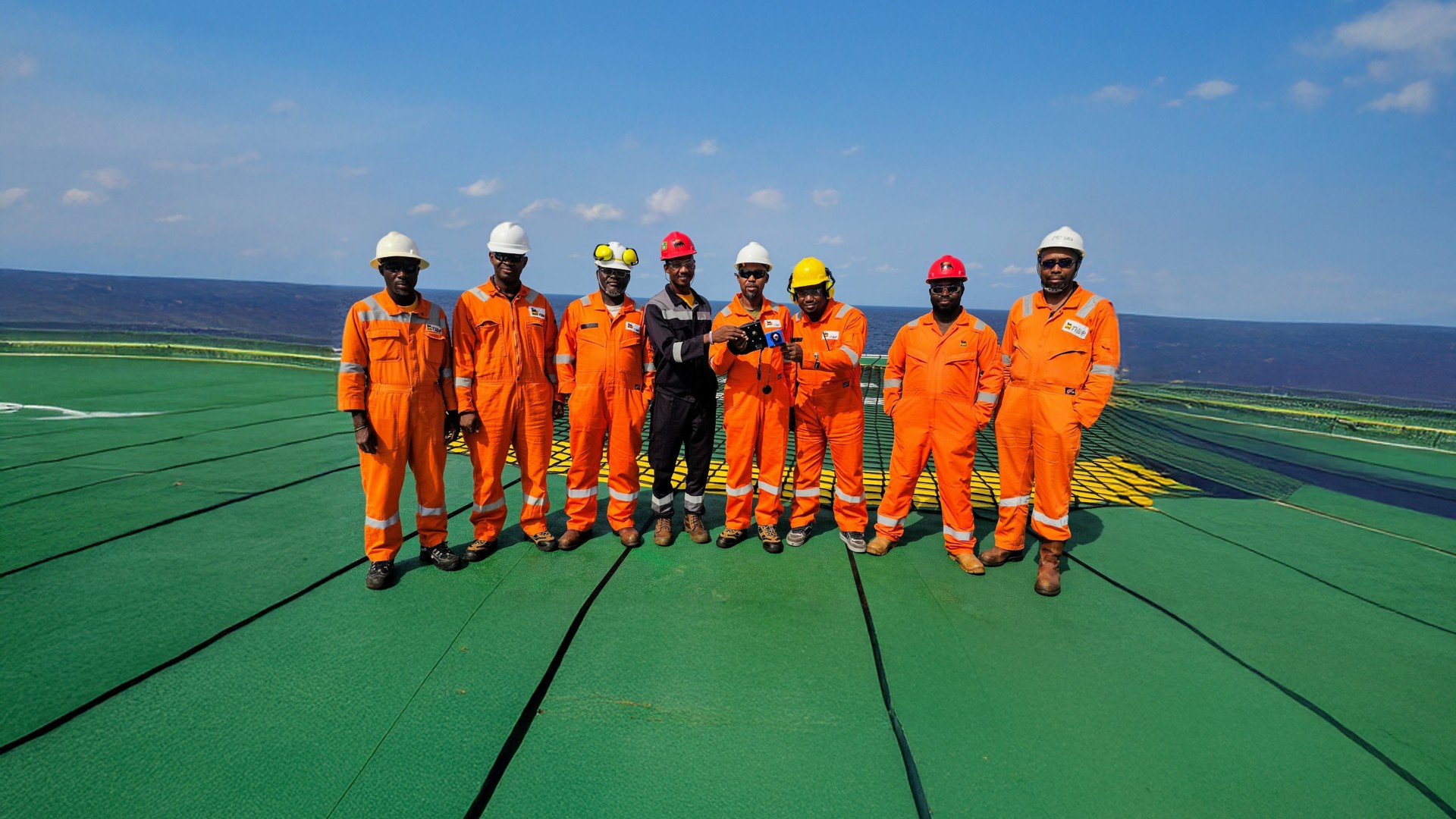Type of activity
Liquid natural gas (LNG)
Oil & Gas
Access to water and sanitation
Access to off-grid energy
Economic diversification

In August 2024, we closed the sale of Nigerian Agip Oil Company Ltd (NAOC Ltd), as part of a global strategy to rationalize our upstream activities and rebalance our portfolio, while maintaining our presence in the country through Nigerian Agip Exploration (NAE) and Agip Energy and Natural Resources (AENR). This transaction was made possible by the agreement signed in September 2023 between Eni and Oando PLC, and the formal approval received in July 2024 from the Nigerian Upstream Petroleum Regulatory Commission (NUPRC), along with all other necessary authorizations from the relevant local and regulatory authorities.
In Nigeria we continue to operate in the exploration and production of hydrocarbons through our participation in 24 upstream licenses across the country’s onshore, shallow water and deep offshore, as well as through our shareholding in Nigeria LNG Ltd. In addition, through the Green River Project, we have supported the populations of the Niger Delta with extraordinary programmes such as the distribution of staple commodities and reconstruction activities following the floods that have affected the area for decades. We consistently support local communities through various initiatives ranging from economic diversification, educational support, and access to water and energy, to the construction and rehabilitation of infrastructures and agriculture.
We have a deep-rooted bond with Africa, the continent where we took our first steps outside of Italy. With around 70% of its population aged under 30, it is taking on an increasingly important role in the global geopolitical and economic landscape. Our aim is to support Africa in rising to the challenge of the energy transition, an important part of which is access to clean energy.
Activity start date: 1962 – present
Our exploration activities cover a gross surface area of over 18,305 km² (4,327 Km² Eni share), from onshore basins to the deep offshore.
We have a 100% working interest in the deep offshore, where we are the operator of the longest producing deepwater oilfield in the country. In addition, we hold non-operated interests in a field with partners on the Bonga North project, as well as the SPDC joint venture, the largest joint venture in Nigeria. Collectively, we participate in 24 upstream blocks and produce oil, condensate, and natural gas. Finally, through our shareholding in Nigeria LNG Ltd, we help manage the Bonny natural gas liquefaction plant, where we are currently investing in the Train 7 expansion project with the goal of increasing annual production capacity. The plant is set to become one of the world's major LNG hubs and will make it possible to better exploit Nigeria’s abundant associated gas resources.
In collaboration with FAO and NNPC, Eni delivered water schemes powered by photovoltaic systems between 2018 and 2022, to improve access to water for the communities affected by the humanitarian crisis in the North-East. Thanks to the renewable energy, the projects contribute to domestic irrigation, provide access to clean and safe water. From 2023 to 2024, Eni contributed to access to education through the award of postgraduate scholarships, for postgraduate studies in foreign universities and Nigerian Universities, Tertiary Scholarships (Undergraduate) and Bursary awards (post primary). The initiatives are aimed at promoting knowledge acquisition and better education opportunities for students, build capacity and meet skill requirements for the oil and gas industry.
The data were selected from those contained in our official documents.
oil and condensate production
gas production
hydrocarbon production
production capacity Bonny plant
oil and condensate production
gas production
hydrocarbon production
production capacity Bonny plant
From the onshore find in the Niger Delta to the delivery of solar-powered water plants, our most important achievements in the country.
Eni announced the closing for the transaction of Nigerian Agip Oil Company Ltd (“NAOC”) to Oando PLC.
The systems, which provide water for domestic use and irrigation, were developed as part of the Eni and FAO “Access the water” initiative.
The contract involves the production of 1.5 million tonnes of LNG by the liquefaction trains that already exist at Bonny Island.
Just three weeks from the completion of the well in the Niger Delta, Eni begins producing gas, for the domestic market, and condensates.
The partnership agreement between Eni and the FAO involves the development of wells powered by photovoltaic systems for domestic use and irrigation.
An agreement between the local government and Eni promotes new activities to contribute to the economic and social development of the country.
Through NAE, Eni has awarded scholarships to 30 Nigerian graduates for Post Graduate studies in Nigerian and overseas Universities under its 2024/2025 Scholarship Awards Scheme. 10 beneficiaries will undertake postgraduate studies in various Universities in the United Kingdom and Canada. The remaining awardees will pursue their postgraduate studies in Nigerian Universities in disciplines such as Engineering, Geosciences, Petroleum and Environmental Technology, Renewable Energy and Petroleum Law. The scholarship award highlights Eni’s commitment to the future of education, innovation, and progress in Nigeria. The postgraduate scholarship scheme was instituted by NAE PSC partners in 2007 as part of the company’s human capital development initiatives to promote knowledge acquisition and bridge the skills gap in specialized fields relevant to deep offshore Oil&Gas operations in Nigeria. To date, 320 graduates have benefitted from the Postgraduate Scholarship Schemes, instituted by the company to contribute to the training of local professionals, providing the knowledge and skills required within the industry.
Selected data on local development and training initiatives in the country.
water schemes powered by photovoltaic systems (5 in Abuja FCT and 17 in north-east Nigeria)
beneficiaries
postgraduate scholarships
Tertiary Scholarships (Undergraduate)
Bursary awards (post primary)
Stories and pictures from our work with FAO in Nigeria: our practical contribution to improving access to water and mitigating the climate crisis in the country.